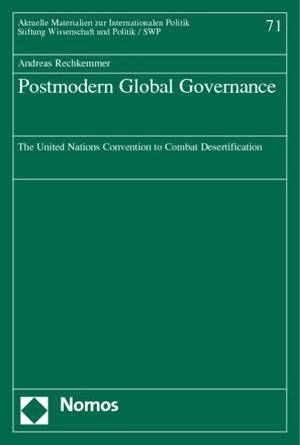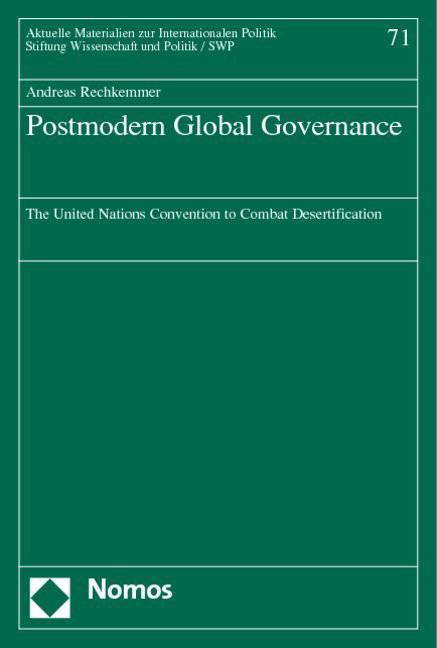
- Afhalen na 1 uur in een winkel met voorraad
- Gratis thuislevering in België vanaf € 30
- Ruim aanbod met 7 miljoen producten
- Afhalen na 1 uur in een winkel met voorraad
- Gratis thuislevering in België vanaf € 30
- Ruim aanbod met 7 miljoen producten
Zoeken
Postmodern Global Governance
The United Nations Convention to Combat Desertification
Andreas Rechkemmer
€ 29,45
+ 58 punten
Omschrijving
This book is about the United Nations Convention to Combat Desertification (UNCCD) - one of the multilateral agreements that came out of the UN Conference on Environment and Development (UNCED) held in Rio de Janeiro in 1992. UNCCD is based on a conceptualization of international relations that transcends to a large extent the traditional notions of inter-governmental treaties. Such policy concepts are known under the framework of Global Governance as they allocate political action rather to the horizontal level - implying multi-actor-networks and the civil society - than to vertical or top-down processes. The study first shows that - inspired by the Brundtland Report and the emerging process of globalization - Rio was the peak season for Global Governance concepts that found their way into treaties and triggered structural reform, thus shaping a different reality of multilateral cooperation. In a second step, the book shows that the Convention to Combat Desertification is the most Global Governance oriented of all of UNCED's outcomes. Its legally binding text contains a number of pertinent elements, ranging from a stringent cross-over of environment and development issues, via the "bottom-up approach', to a mix of policy tools such as mainstreamed national action programmes and partnership agreements.
Specificaties
Betrokkenen
- Auteur(s):
- Uitgeverij:
Inhoud
- Aantal bladzijden:
- 172
- Taal:
- Engels
- Reeks:
- Reeksnummer:
- nr. 71
Eigenschappen
- Productcode (EAN):
- 9783832910327
- Uitvoering:
- Paperback
- Afmetingen:
- 230
- Gewicht:
- 266 g

Alleen bij Standaard Boekhandel
+ 58 punten op je klantenkaart van Standaard Boekhandel
Beoordelingen
We publiceren alleen reviews die voldoen aan de voorwaarden voor reviews. Bekijk onze voorwaarden voor reviews.











